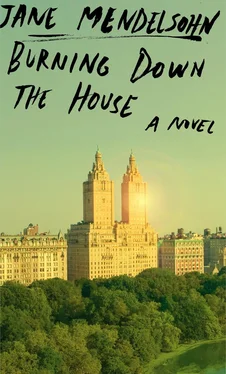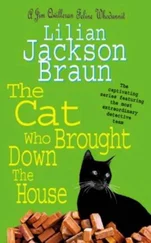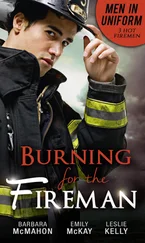Nothing yet, said Angus. I’d need to see the whole thing first.
What do you think of the staging?
It’s hard to tell, said Kai. Without the set, or costumes.
That’s good, said Ian, who didn’t really care what they thought. Because it’s all going to change anyway. This is a work in progress. Early days still.
—
He gazed down at them and thought about how many years he had known them. At one time, he had considered them friends. But ever since his early success they had treated him resentfully, dismissively. Now he saw them as pompous and pretentious and deeply vain in spite of their bland academic outfits and aggressively aging hair. They’d followed his successful career as if they were bird-watchers and he some common pigeon who had inexplicably been accepted by a flock of rare eagles. They no more believed in his talent than they believed that they themselves might be untalented. Over the years they had won prizes and fellowships and commissions and professorships. They had been invited to lecture and appeared in numerous footnotes. These achievements had been like snakebites on their egos, swelling them out of proportion to the rest of their beings so that their sense of importance bulged and tottered on top of them like extra heads, as if they were monsters in a fable, muzzled, drooling, snouted, skin split to reveal pink bone and yellow ooze. There was a flurry of conversation as Ian tried to swat away their lumbering passive-aggressive attacks and Jonathan enjoyed the performance like a stallion watching smaller animals argue over a rodent.
—
After Angus and Kai left the theater Jonathan told Ian he’d like to invest in the show. Then he said: So Alix tells me Poppy is starting an internship with you. Interesting.
PART TWO The Total Dark Sublime
Were all stars to disappear or die,
I should learn to look at an empty sky
And feel its total dark sublime,
Though this might take me a little time.
— W. H. AUDEN, “The More Loving One”
POPPY CAME FROM a complicated family but this much can be explained: she knew Ian as the best friend of her considerably older half sister Alix. Technically, Alix was Poppy’s first cousin, but Alix’s father Steve had adopted Poppy at age six, when Poppy’s mother, Steve’s sister Diana, had died and left Poppy an orphan. There had never been any father in the picture. At least no one that Poppy knew.
—
It begins with a child.
—
Poppy does not know much of anything other than that when she is with Ian nature seems inverted: the air between them pulses but her own heart stops beating every few seconds, the outside world falls silent while a siren in her head blares from atomic synthesizers. There is conversation and a dangerous warmth, a raw heat rippling in what seem like visible waves as she and Ian speak, and Poppy, nervous, red cheeked, talks too quickly and ends up regretting half her words.
—
Ian is unmarried and pushing forty, and his age, combined with the feral attraction he feels for this teenager, has sentenced him to a low-level appointment with his own mortality, a feeling of dread as if an unpleasant yet unavoidable conference call were perpetually looming. He has no idea what to do with this feeling. His career is reaching new heights after his early successes, and he is not in favor of any distractions from work, such as an entanglement or even an emotional connection. He throws himself more feverishly into the Broadway show he is directing, staying up until all hours at workshops, jumping onstage to demonstrate choreography and gestures, in that way that directors do.
—
Onstage he is a black silhouette, the bright lights blinding behind him, illuminating nothing. He will be burned into her brain, branded on her frontal cortex. She will be able to call up this image and feel her every emotion singularly fixed on this picture. It is as if the rest of her mind ceases to think and each connection points only to him. It is a reflex and it is a meaningful feeling. She is frightened, awoken, awake.
—
After weeks of flirtation — texts and e-mails and old-fashioned phone calls — that had begun during Poppy and Alix’s brother Jonathan’s wedding at a rented estate in the English countryside, Ian and Poppy had been reduced to bodies with heads, no sense in their brains. Poppy had lost the ability to think clearly, to formulate coherent arguments, to do her homework. Ian threw himself even more intensely into his show. When she arrived for the unpaid internship that Alix had secured for her at the theater on the wrong afternoon and found Ian alone in the fifth row center, his hands folded over his chest, his feet up on the seat in front of him, she should have gone home. He should have sent her home. The enveloping darkness of the empty house, the feeling of her feet walking ahead of her down the aisle, and then the slow hours during which they sat side by side in velvet seats, talking and later touching: everything that happened should not have happened. He was too old. She was too young. But something, some encoded understanding that they were meant to be together, compelled them to abandon any notion that this was probably not a good idea.
—
Should I walk you home?
No, that’s okay. I’ll find a taxi.
I’ll get you one.
No, that’s okay. I’m okay.
It’s late. I’m coming with you. It’s dark outside. Let me help you. I mean help you get a cab.
—
Poppy and Ian had no plan, no vision of how their relationship would unfold, only a chronic twisting in the pits of their stomachs, a nebulous, persistent sense that what they were doing was inevitable and also a mistake, which propelled them forward. For days, then weeks, there were long, amorous walks and secret meetings at the theater and even Ian’s apartment. Receipts and napkins and other mementos of their time together filled Poppy’s pockets and book bag and the drawer of her bedside table. Poppy waited for someone to find out, until she realized no one would and she told one friend and then forgot to worry. She followed Ian’s lead for how to keep their involvement both daring and secret, hiding in the folds of the curtain until all of the actors and tech people had left, sleeping for a couple of hours at his place before heading uptown, through the galvanized light of early morning in the city before anyone at home woke up.
—
The silver light blasts off of windows, bounding across rooftops, blinding. She squints, trying to find an explanation for her self, her situation, her unfamiliar ecstasy. Is this just a superficial metropolitan gleam or is it more? Does the sun make any sense? Does morning? She is a vessel of questions, with no answers. Are there answers? She leans back and closes her eyes and calls up an image and her mind fires and the questions fade away.
—
They had spent several months in this state, sharing every feeling that drifted by, stealing tiny moments and burning glances, and suffering through serious conversations about whether they had any future, until one night, in the grip of a new degree of passion, Poppy came across a letter. Rummaging through Ian’s desk while he was in the shower, she had found the bloated white envelope filled with photographs, and for the first time in her life she threw a bottle at a mirror and it broke. It was clumsy and impulsive. She burst into the bathroom and smashed the glass into the medicine cabinet, and Ian, without even stopping the rinsing of his hair, finished his bathing and then calmly explained, with a towel wrapped around his waist, that he had been looking through photos of old girlfriends from the eighties as part of his research for the show.
Читать дальше












